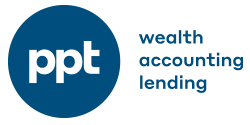Budget 2016: Indivduals & Families
The 2016/17 Federal Budget included several key announcements targeted towards individuals and families, including personal tax cuts for middle income owners, increases to the Medicare threshold for low-income earners and a new employment program for unemployed youth.
Personal tax cuts for middle income earners
Date of effect: 1 July 2016
The 32.5% personal income tax threshold will increase from $80,000 to $87,000 from 1 July 2016. The new tax rates from 1 July 2016 would be as follows:
| Taxable income | Tax rate from 1 July 2016 |
| $0 – $18,200 | 0% |
| $18,201 – $37,000 | 19% |
| $37,001 – $87,000 | 32.5% |
| $87,001 – $180,000 | 37% |
| $180,001 and over | 45% |
These tax rates exclude the Medicare Levy and the 2% debt tax on high-income earners over $180,000 which will come to an end on 30 June 2017.
Increase in the Medicare low-income threshold
Date of effect: 2015-16 income year
The Medicare low-income threshold for singles, families and seniors and pensioners will increase.
| 2015-16 income year threshold | |
| Singles | $21,335 |
| Couples (no children) | $36,001 |
| Additional amount of threshold for each dependent child or student | $3,306 |
| Single seniors and pensioners | $33,738 |
| Senior and pensioner couples with no children | $46,966 |
Pause on Indexation of Medicare Levy Surcharge and Private Health Insurance Rebate Thresholds extended
The current pause in indexation of the income thresholds for the Medicare Levy Surcharge and Private Health Insurance Rebate will be extended for a further three years. The continued pause from 1 July 2018 is expected to achieve efficiencies of $744.2 million over three years.
Child care reforms on hold
The Government has deferred the implementation of the Child Care Subsidy, Additional Child Care Subsidy and Community Child Care Fund by one year to 1 July 2018 due to the Family Tax Benefit reforms required to fund the child care package not being passed by the Senate.
The Interim Home Based Carer Subsidy Pilot Programme (Nanny Pilot Programme), that started on 1 January 2016 and subsidises care provided by a nanny in a child’s home, will be extended for six months to 30 June 2018. The hourly fee cap will be increased from $7 to $10 from 1 June 2016.
Unemployed youth – subsidies to create path to employment
PaTH (Prepare – Trial – Hire) is for job seekers under 25 years of age. The program has 3 elements:
- Industry‑endorsed pre‑employment training (Prepare) – from 1 April 2017, training for up to six weeks will be provided to develop basic employability skills, including those required to identify and secure sustainable employment.
- Internship placements of up to twelve weeks (Trial) – from 1 April 2017, up to 30,000 internship placements will be offered each year to enable businesses and job seekers to trial their employment fit. Job seekers will receive a $200 fortnightly incentive payment and businesses will receive $1,000 upfront to host an intern. Placements will be voluntary and will be organised by employment services providers. Job seekers must be registered with jobactive, Disability Employment Servicesor Transition to Work, and have been in employment services for at least six months to be eligible for the internship program.
- Youth Bonus wage subsidies (Hire) – from 1 January 2017, employers will receive a wage subsidy of up to $10,000 for job seekers under 25 years old with barriers to employment and will continue to receive up to $6,500 for the most job‑ready job seekers. Job seekers must be register with jobactiveor Transition to Work, and have been in employment services for at least six months for employers to be eligible for the wage subsidy. Funding for this component will be provided from within the existing funding for wage subsidies.
SOURCE: Knowledge Shop
To discuss how this may impact your circumstances please contact PPT on (03) 5331 3711.
DISCLAIMER: The material and contents provided in this publication are informative in nature only. It is not intended to be advice and you should not act specifically on the basis of this information alone. If expert assistance is required, professional advice should be obtained.


